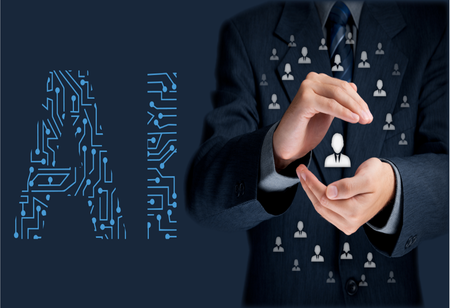The Impact of Artificial Intelligence in HR
By Rohan A T
 For the untrained eye, Human resource and Artificial Intelligence are 2 things that are on the opposite end of the spectrum. Like many other industries, the impact of AI in the HR space has helped companies to improve the quality of their HR services drastically. The use of artificial intelligence in HR paved way for a better all round HR operations. To get the best results, AI and automation in HR will help organizations to set their HR goals specifically and achieve those goals much more easily. With AI in place, many HR personnel had the first impression that their position in the organization has become redundant. The truth of the matter is that AI has also created newer job opportunities for individuals and those who can evolve with the changing trends will always be in demand and stay relevant in the industry. The introduction of AI has also had a massive impact on how organizations used their HR technologies. While some companies are still hesitant to try out AI in their HR arena, the ones that have adopted AI has been moving ahead. Some of the most important benefits of using artificial intelligence in HR are:
For the untrained eye, Human resource and Artificial Intelligence are 2 things that are on the opposite end of the spectrum. Like many other industries, the impact of AI in the HR space has helped companies to improve the quality of their HR services drastically. The use of artificial intelligence in HR paved way for a better all round HR operations. To get the best results, AI and automation in HR will help organizations to set their HR goals specifically and achieve those goals much more easily. With AI in place, many HR personnel had the first impression that their position in the organization has become redundant. The truth of the matter is that AI has also created newer job opportunities for individuals and those who can evolve with the changing trends will always be in demand and stay relevant in the industry. The introduction of AI has also had a massive impact on how organizations used their HR technologies. While some companies are still hesitant to try out AI in their HR arena, the ones that have adopted AI has been moving ahead. Some of the most important benefits of using artificial intelligence in HR are:
1. Improving the Recruitment Process: There are not many daunting tasks in HR than the process of recruiting. Companies and their HR department have always faced some kind of challenges in their recruitment process and the major reason for that is there are various things that should fall in place to make the recruitment process successful. With the competition in the industry getting tighter, every organization is going for the best candidates in the job market. AI will help organizations to filter the most suitable candidates from the plethora of applications they receive. This will make the recruitment process less tedious and businesses will be able to choose the ideal candidate for the organization.
2. Creating a Seamless Induction Process: A recent study suggests that about 17 percent of the newly recruited employees leave the organization within just 3 months. Within this, 15 percent states that the reason behind their designation is the lack of proper orientation programs provided by the employer. For new employees, orientation programs are crucial and it not only makes them familiarize with their work but it also helps them to sync in with the organizational work culture. AI allows organizations to deal with this scenario by making the on-boarding process more effective and less lengthy.
3. Better Employee Retention: Employee retention is crucial for achieving sustained growth in the market. Poor employee retention will also adversely affect the organizations' reputation and goodwill. This will also create a bad picture among prospective candidates too. The implementation of AI will help companies to create new HR strategies that will improve the employee retention ratio. By allowing the company to identify what motivates and boosts the performance of the employees, AI will enable the firm to create a balanced work culture which is what all the candidates are looking for. AI integration will also allow the company to identify the common traits among their employees and create a flawless HR plan to make the employees happy and satisfied in the organization.
4. Formulating Future Strategies: In the modern job market, the future of an organization depends on the ability of the business to attract and retain talent. With more companies starting to enter the market, candidates have the ability to choose the companies they are going to work for. With AI integration, companies will be able to create the perfect work experience for their employees that will help them to not only retain their workforce but also attract prospective talented employees.
Employees are the most important asset that an organization can have and the employees of an organization can make or break a company. The goal is to choose the ideal candidate that aligns with the organizational culture and vision. By integrating AI into HR, companies will be able to get suitable candidates and create a work environment that everyone would like to work in.




